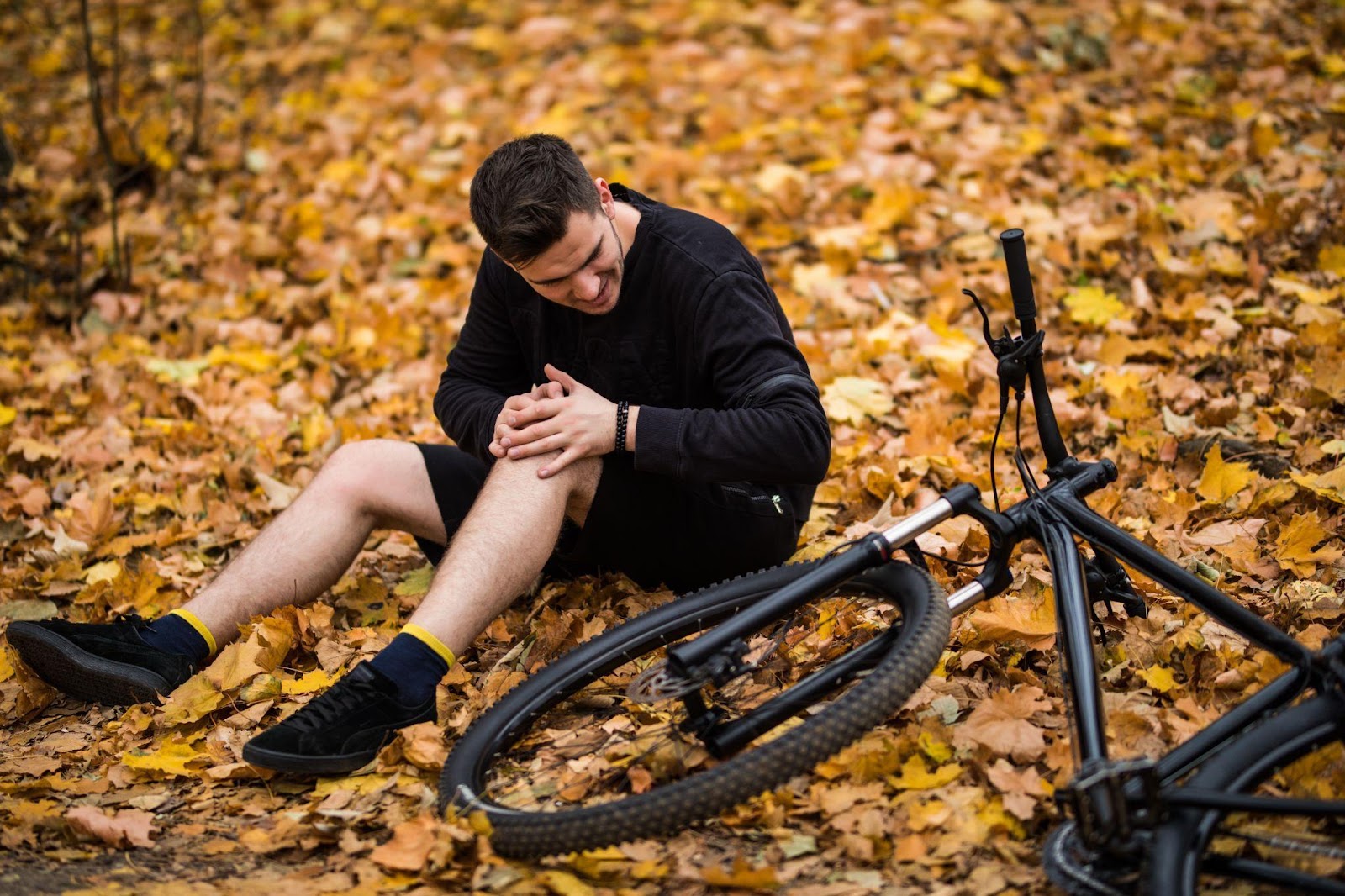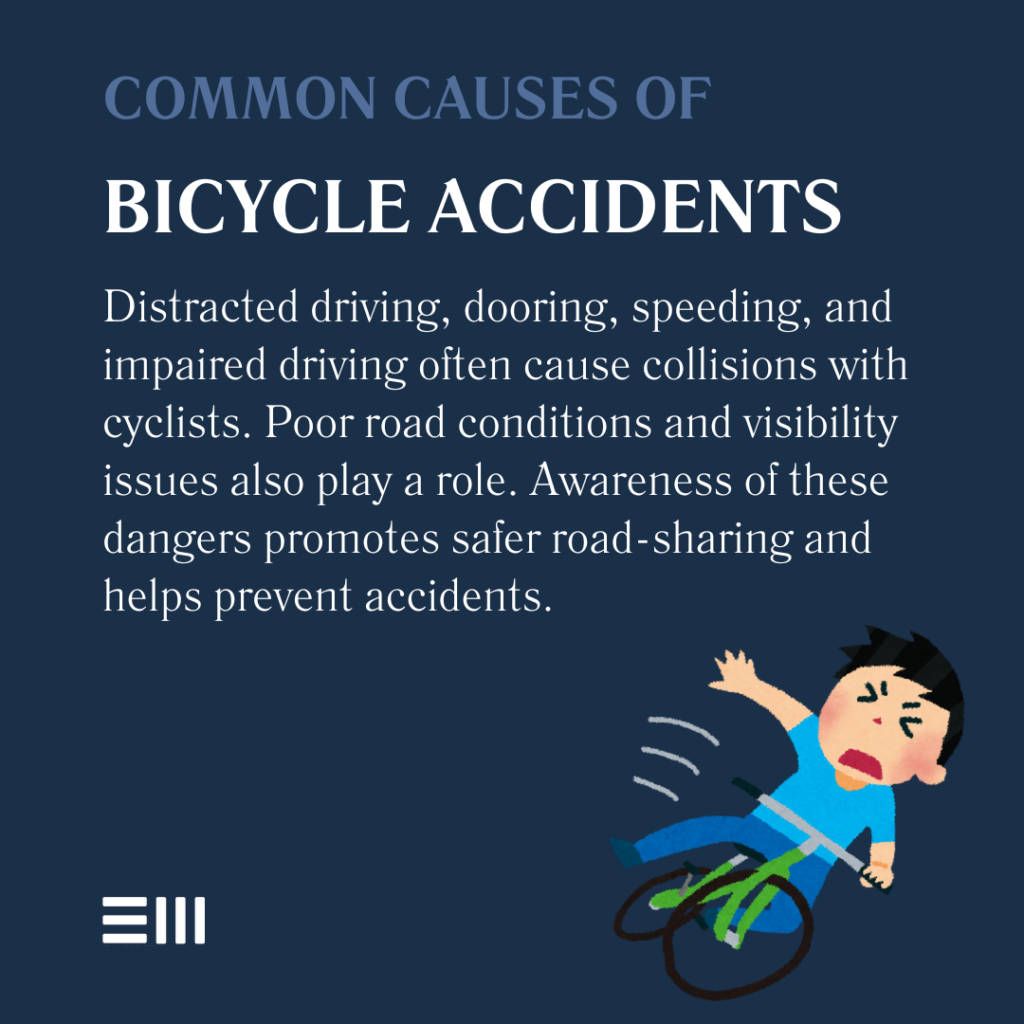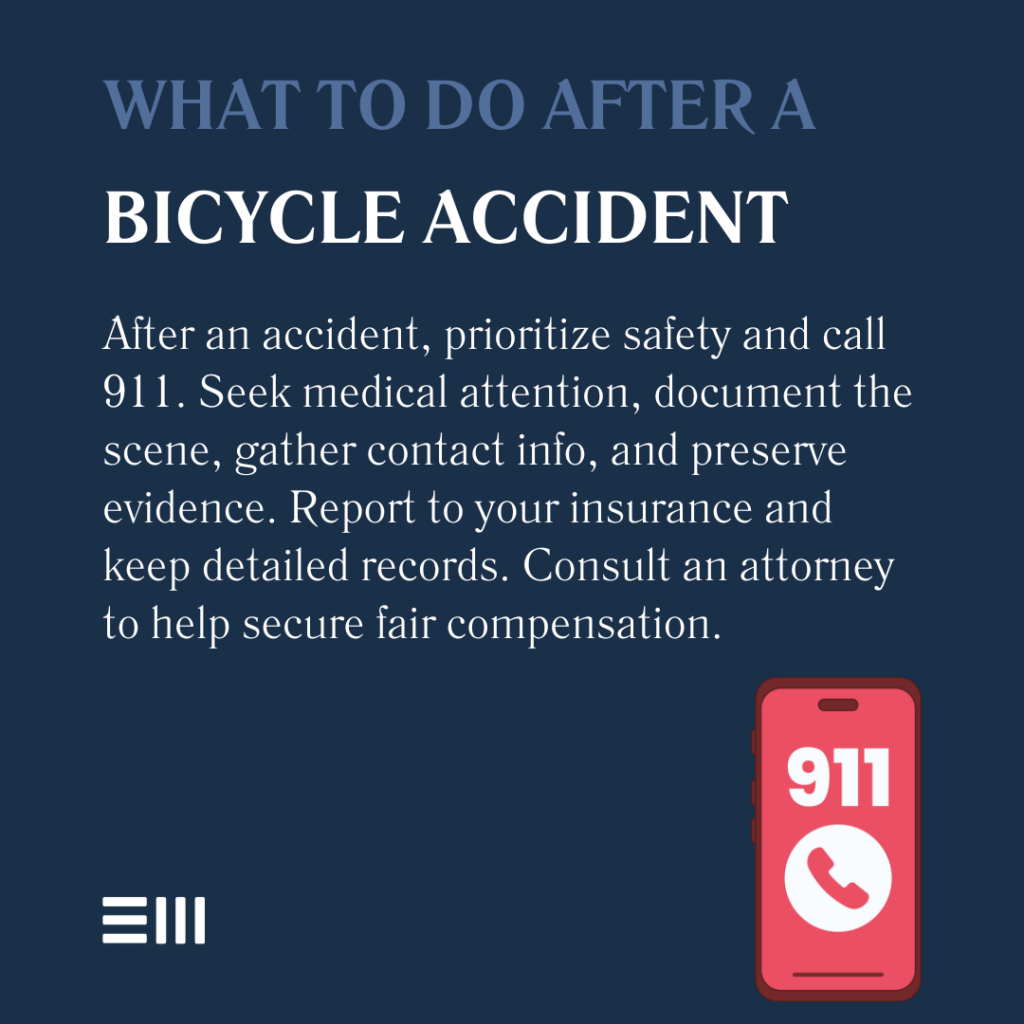
According to the 2018 Alabama Traffic Crash Facts, there were 209 bicycle crash injuries and nine fatalities in that year alone.
As cycling continues to gain popularity in Alabama, understanding the risks and knowing your rights on the road has never been more important.
Here, our Alabama bicycling accident attorneys will explore key aspects of cycling safety, from legal rights to practical safety tips, to help you stay informed and protected while riding.
Whether you’re an avid cyclist or just starting out, these insights are crucial for navigating Alabama’s roads safely.
Cycling Laws in Alabama
Understanding and following Alabama’s cycling laws is essential for both cyclists and motorists.
Here are some key laws to keep in mind:
- Right to the Road: Cyclists have the same rights and responsibilities as motor vehicle drivers on Alabama roads.
- Lane Position: Cyclists should ride as close to the right side of the road as practicable, except when passing, turning left, avoiding hazards, or when the lane is too narrow to share safely with a vehicle.
- Helmet Use: While not required by state law for adults, helmets are strongly recommended for all cyclists and required for riders under 16 years old in some municipalities.
- Lighting Requirements: Cyclists riding at night must have a white front light visible from at least 500 feet and a red rear reflector visible from 600 feet.
- Hand Signals: Cyclists must use hand signals to indicate turns and stops, except when both hands are needed to control the bicycle.
- Sidewalk Riding: While not prohibited by state law, local ordinances may restrict sidewalk riding in certain areas.
- Passing Distance: Motorists must maintain a safe distance of at least 3 feet when passing cyclists.
Understanding these laws helps cyclists assert their rights and promotes safer interactions between cyclists and motorists on Alabama roads.
Common Causes of Bicycle Accidents
Recognizing the common causes of bicycle accidents can help both cyclists and motorists take preventive measures.
Some frequent causes include:
- Distracted Driving: Motorists using phones, eating, or engaging in other distracting activities may fail to notice cyclists.
- Dooring: When a driver or passenger opens a car door into the path of an oncoming cyclist.
- Failure to Yield: Motorists not yielding the right of way to cyclists at intersections or when turning.
- Speeding: Excessive speed reduces reaction time and increases the severity of accidents.
- Poor Road Conditions: Potholes, debris, or inadequate bike lanes can contribute to accidents.
- Impaired Driving: Alcohol or drug use impairs judgment and reaction time for both motorists and cyclists.
- Visibility Issues: Low light conditions or lack of proper bicycle lighting can make cyclists hard to see.
- Improper Lane Changes: Motorists changing lanes without checking for cyclists.
- Right-hook Collisions: When a motorist makes a right turn and collides with a cyclist going straight.
- Left-cross Collisions: When a motorist making a left turn fails to yield to an oncoming cyclist.
Being aware of these common causes can help both cyclists and motorists take proactive steps to prevent accidents.

Cyclist Rights in Alabama
As a cyclist in Alabama, you have several important rights:
- Right to the Road: Cyclists have the same rights to use public roads as motorists, except on limited access highways where bicycles are prohibited.
- Right to Safe Passing: Motorists must maintain a safe distance of at least 3 feet when passing cyclists.
- Right to Take the Lane: Cyclists can “take the lane” (ride in the center of the lane) when necessary for safety, such as when the lane is too narrow to share safely with a vehicle.
- Right to Use Bike Lanes: Where provided, cyclists have the right to use designated bike lanes.
- Right to Protection from Harassment: It’s illegal for motorists to harass, taunt, or throw objects at cyclists.
- Right to Compensation: If injured due to a motorist’s negligence, cyclists have the right to seek compensation for damages.
- Right to Equal Treatment: Law enforcement should treat bicycle-vehicle collisions with the same seriousness as collisions between motor vehicles.
Understanding and asserting these rights can help ensure safer cycling experiences and fair treatment in the event of an accident.
Road Safety Tips for Cyclists
While knowing your rights is important, practicing safe cycling habits is crucial for preventing accidents.
Here are some essential safety tips:
- Always Wear a Helmet: A properly fitted helmet can significantly reduce the risk of head injuries in case of an accident.
- Be Visible: Wear bright or reflective clothing, especially in low-light conditions. Use front and rear lights when riding at night.
- Follow Traffic Rules: Obey traffic signs, signals, and lane markings. Ride in the same direction as traffic.
- Use Hand Signals: Signal your intentions to turn or stop to communicate with motorists.
- Stay Alert: Watch for road hazards, parked cars (watch for opening doors), and be aware of your surroundings at all times.
- Ride Predictably: Maintain a straight line and avoid sudden movements. Make eye contact with drivers to ensure they see you.
- Use Bike Lanes When Available: Utilize designated bike lanes or paths when they’re available and in good condition.
- Perform Regular Maintenance: Keep your bicycle in good working order, checking brakes, tires, and other components regularly.
- Avoid Distractions: Don’t use headphones or mobile devices while cycling.
- Ride Single File: When riding in groups, ride single file to allow motorists to pass safely.
By following these safety tips, cyclists can significantly reduce their risk of accidents and injuries on Alabama roads.
What to Do After a Bicycle Accident
If you’re involved in a bicycle accident in Alabama, take the following steps:
- Ensure Safety: Move to a safe area if possible and check for injuries.
- Call 911: Report the accident to the police, even if injuries seem minor.
- Seek Medical Attention: Get medical care for any injuries, even if they seem minor at first.
- Document the Scene: Take photos of the accident scene, your bicycle, and any visible injuries.
- Collect Information: Get contact and insurance information from the motorist involved and any witnesses.
- Preserve Evidence: Keep your damaged bicycle and gear as evidence.
- Report to Insurance: Notify your insurance company about the accident.
- Keep Records: Document all medical treatments, missed work, and other accident-related expenses.
- Avoid Early Settlement: Don’t accept a quick settlement offer without understanding the full extent of your injuries and damages.
- Consult an Attorney: Consider speaking with a bicycle accident attorney to understand your rights and options.
Taking these steps can help protect your rights and strengthen your case if you need to seek compensation for your injuries and damages.

Seeking Compensation for Bicycle Accidents
If you’ve been injured in a bicycle accident due to someone else’s negligence, you may be entitled to compensation.
This can cover:
- Medical Expenses: Including current and future medical treatments related to the accident.
- Lost Wages: Compensation for time missed from work due to injuries.
- Pain and Suffering: For physical pain and emotional distress caused by the accident.
- Property Damage: Costs to repair or replace your bicycle and other damaged property.
- Loss of Enjoyment of Life: If your injuries prevent you from enjoying activities you once did.
- Permanent Disability: If the accident results in long-term or permanent impairment.
To maximize your chances of receiving fair compensation:
- Document everything related to the accident and your injuries.
- Don’t give recorded statements to insurance companies without legal advice.
- Be cautious about early settlement offers, as they may not cover all your damages.
- Consider consulting with an experienced bicycle accident attorney who can advocate for your rights and handle negotiations with insurance companies.
Remember, Alabama has a statute of limitations for personal injury claims, typically two years from the date of the accident. It’s important to act promptly to protect your right to compensation.
Frequently Asked Questions
To help you navigate cycling laws and safety in Alabama, here are some frequently asked questions we receive about bicycling accidents in Alabama.
Do I Need to Register My Bicycle in Alabama?
No, Alabama does not require bicycles to be registered at the state level. However, some local municipalities may have their own registration requirements.
Can I Ride My Bicycle on the Sidewalk in Alabama?
While not prohibited by state law, local ordinances may restrict sidewalk riding in certain areas. Always check local regulations and use caution around pedestrians if sidewalk riding is allowed.
What Should I Do If a Motorist Harasses Me While I’m Cycling?
If you feel threatened, find a safe place and call the police. Try to note the vehicle’s license plate number and description. Harassment of cyclists is illegal in Alabama.
Are Electric Bicycles Treated the Same as Regular Bicycles Under Alabama Law?
Alabama classifies e-bikes into three classes based on their top assisted speed and whether they have a throttle. Class 1 and 2 e-bikes are generally treated similarly to regular bicycles, while Class 3 e-bikes may have additional restrictions.
Can I Be Held Liable If I Cause a Bicycle Accident?
Yes, cyclists can be held liable if their negligent actions cause an accident. This is why following traffic laws and practicing safe cycling habits is important.
Take Action to Protect Your Rights
If you’ve been involved in a bicycle accident in Alabama, don’t face the challenges alone.
At Baxley Maniscalco, we understand the complexities of bicycle accident cases and are committed to protecting the rights of cyclists.
Our experienced team of attorneys is ready to:
- Provide a free, no-obligation consultation to discuss your case;
- Investigate your accident thoroughly to build a strong claim;
- Negotiate with insurance companies on your behalf; and
- Fight for the full compensation you deserve.
Don’t let the statute of limitations expire on your claim. Contact Baxley Maniscalco today to schedule your free consultation.
Can't find what you're looking for? Search our site below.










